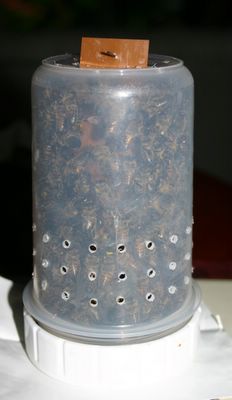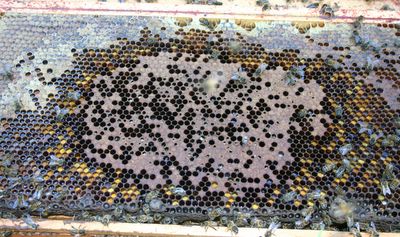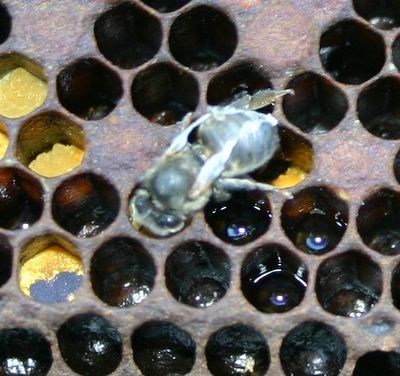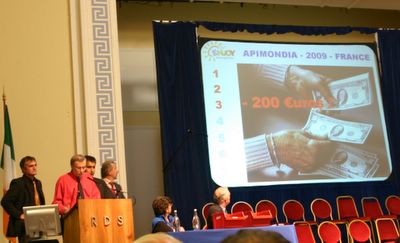Testing for resistance

I'm testing the varroa in that hive for resistance right now -- I should have the results in a few hours.
The plastic jar contains a sample of bees with a special strip of pyrethroid. The object is to see how many varroa that kills in four hours. then to kill and wash the bees to find the remaining varroa that survived the pyrethroid. Then the calculation to see if there may be resistance ...

UPDATE 22:30
Well, I'm afraid that test was utterly inconclusive. No varroa were killed by the pyretroid strip and only one varroa (thank goodness for it!) was found in the next washing phase. Possible reasons:
- My sample was too small and not all from the right places: I could only collect about half the required bees and many of them from the door rather than the brood comb because the colony had dwindled so much.
- Four days ago I felt I had to treat for varroa with Apistan (pyrethroid) anyway and maybe that treatment had already killed most of the varroa.
- Maybe varroa had already almost killed itself because it had decimated its host to such an extent.
- Or varroa isn't the problem at all!
I'll ask someone who knows more than me tomorrow ...
Update: See this update for our best guess.
Labels: honeybee health, varroa














